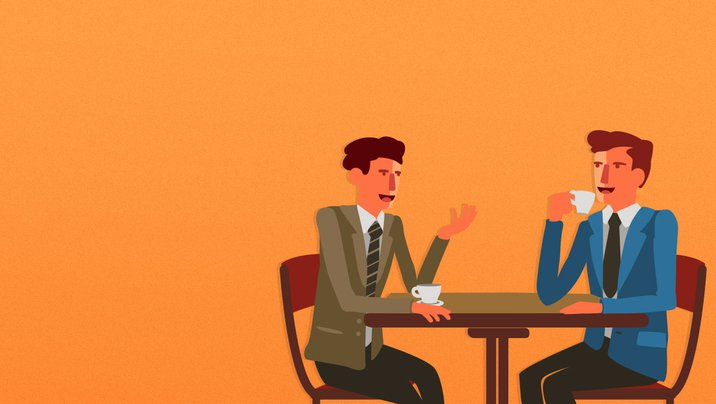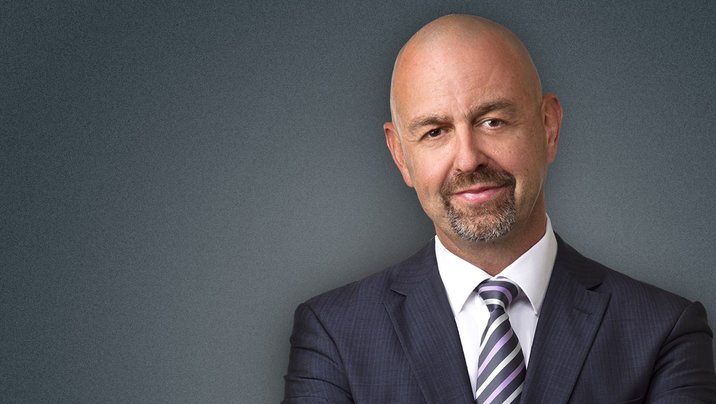People buy from people that they "know, like and trust" right? Not any more!
According to HubSpot, only 3% of buyers completely TRUST a sales person, which seems to be supported by the 2018 study done by CSO Insights indicating that sales people are now ranked the 9th (and last place) that buyers go for resources to help solve business problems.
In the era of information parity, buyers are no longer forced to rely almost solely on ‘trust’ in the what the sales person is telling them. Buyers always seek independent advocacy. In the old days of vendor-push business models, the buyer was nearly always forced to take a leap of faith and that meant placing their trust in the vendor sales person. That's no longer needed.
I have spent my entire career believing that in order to win the sale, I first needed to get past the old interdependent “5 Buying Filters”:
- Like – buyers have to ‘like’ the sales person.
- Trust – buyers need to ‘trust’ the sales person.
- Believe – sales person must be ‘believable’.
- Care – buyers have to ‘care’ about what the sales person is telling them.
- Relevance – information provided by sales person must be ‘relevant’ to buyer’s needs.
In the early part of my career (late 80s/early 90s) these 5 Buying Filters became the centrepiece of everything that I said, did and thought when I was engaged with a buyer – right throughout the sales cycle.
Now, I was never the sharpest tool in the shed, but I soon learned that without checking all of the above 5 boxes, my prospective buyer might just feel more comfortable in dealing with my competitor rather than me. However, with practice, I also learned (to my surprise) that I could actually win a sale even when my product was inferior or my price higher…simply because my buyers liked and trusted me more than my competitor.
Seems strange now, but this was possible (back then) because in the era of information asymmetry, buyers were forced to rely almost solely on ‘trust’ in the absence of independent advocacy. During this vendor-push period, the buyer was nearly always forced to take a leap of faith and that meant placing their trust in the vendor sales person. Unfortunately, too many sales people took advantage of the power imbalance that used to exist, and I have lost track of how many times I personally witnessed a vendor sales person over-promising and then under-delivering….no surprise that buyers are still a little gun shy.
So, what’s changed?
Our trust in each other has declined rapidly in recently years, and according to Harvard University, we now trust the 'sharing economy' more than we trust our own neighbours. Why, because the internet gives us access to information and data points that give us reassurance...the type of reassurance that we get from a trusted referral, and as Mark Zuckerberg says, "nothing is more powerful than a trusted referral".
- Information Parity & The Age of Transparency – when buyers have access to the same information as the vendors do then the game is changed forever. Buyers no longer need to rely solely on knowing, liking or trusting their vendor when they can easily get an unbiased opinion from someone that has experience in using the product or engaging with said vendor. Hence, the rise and rise of customer advocacy, and the use of terms like customer centricity, CX, and measurements like NPS. The chickens have come home to roost for the vendors, and we are now all scrambling to appear really interested in ensuring that customers get what they want. In the words of Alanis Morissette: “isn’t it ironic…don’t ya think?”.
- Customer-Pull Models – because of the bullet point above, buyers are now 100% in control, and they continue to demonstrate (via their actions) that they don’t always want, or need, a ‘personal relationship’ with a vendor sales person (in most cases, and in most industries). Many B2B buyers are now telling me that they no longer NEED to know, like or trust me as their sales person in order to make a buying decision. Times have indeed changed.
- Data Driven Decision Making – buyers now actively seek to avoid being 'pushed' through any type of vendor process - especially by a sales person whom has a vested interest. Instead, buyers now work extra hard to ensure that due process is followed and that purchase decisions are always data driven. Hence the rise of consensus buying teams, and sales people often wonder why they end up in front of their computer screens responding to a rigorous online bidding process and RFT’s.
- Independent Advocacy – In the B2C context, according to BloomReach - 55% of consumers start their online product searches on Amazon, compared to 28% who opt for a search engine. Buyers are now seeking their trust through independent ‘reviews’. Regardless of whether it’s Amazon or some other forum, buyers go into salesperson avoidance mode more and more these days, preferring to get their ‘trust’ from an independent and unbiased source.
“If you meet a stranger and know nothing about him or her, TRUST takes time to develop. But if you have a digital system that gives you a bunch of info about the authenticity of that stranger, trust can be gained instantly.”
Trust is established differently now in the B2B context, with more and more of the business buyers that I’m engaging here in Australia are now demonstrating the same buying patterns that we are now seeing consistently in the B2C space. Trust is increasingly with your company and product, and not you personally. Buyers now increasingly make purchase decisions without having to know, like and trust the sales person because they know that it's your company that has to deliver - not you. Buyers have always preferred to get a customer referral or an independent recommendation, and now it’s really easy for the buyer to quickly ascertain trustworthiness' in this new age of transparency.
If you look around there is evidence everywhere that this shift is real and happening right now. Australian software maker - Atlassian - sold $320 million worth of business software last year without a single sales employee. Atlassian is growing successfully without employing sales staff simply because they have built great products, which have garnered positive market sentiment (read trust) through a very good customer experience. Atlassian is an example of a vendor that has created strong customer advocacy and recommendations for their products (and services) whilst also being proficient at jumping on any negative chatter. According to Scott Farquhar, Atlassian’s co-chief executive officer:
“Our customers don’t want to call a salesperson if they don’t have to, they’d much rather be able to find the answers on the website”.
Yes, Atlassian is just one example, and I'm sure that there are plenty of buyers whom say that the sales person plays an important role in establishing trust. However, depending on your industry, I would once again suggest that you speak with some of your business buyers about the extent to which they NEED to ‘know, like and trust’ you – the salesperson. I think you might get a shock at what you will hear from modern B2B buyers on this old view.
In the high-tech space (where I have spent my career) we now have a proliferation of consumption based models that facilitate free trials and flexible options to switch on/off as you go hence, the risks and barriers to entry (and therefore the need to establish trust) are also reduced.
This evolution combined with the type of workplace change that we are now seeing (rise of the freelance economy and increasing attrition rates in sales) will mean that the concept of having the type of ‘personal relationship’ that I used to covet with my buyers is eventually going the way of the dodo….in exactly the same way that those important ‘personal relationships’ that we all used to have with our bank manager, travel agent, real estate agent, car dealer, local store owners.
Do you still find your buyers wanting to get to know, like and trust you?

